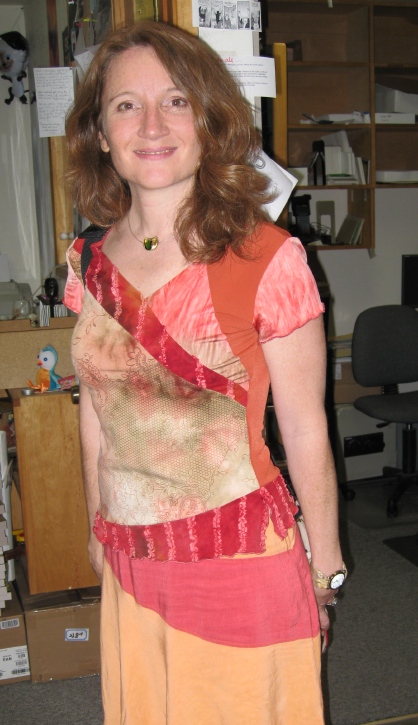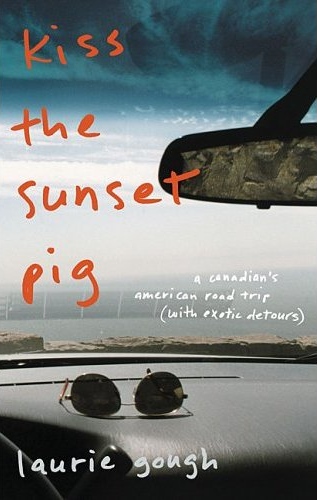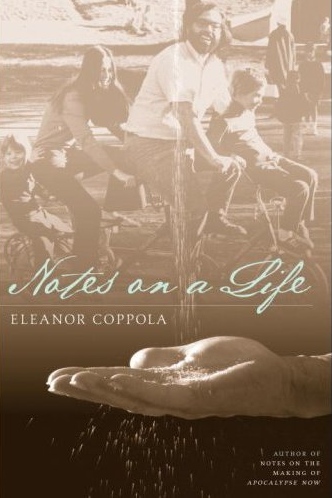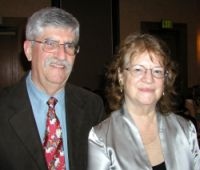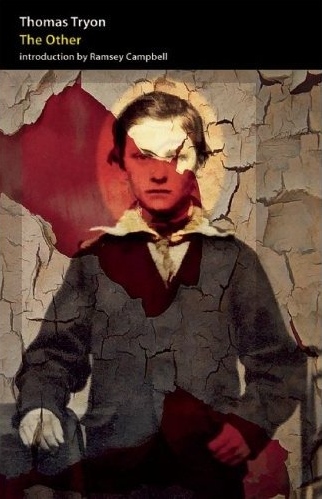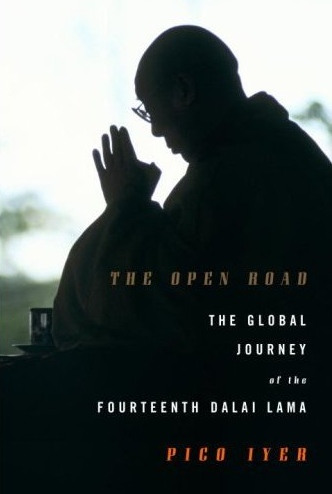|
|
|
|
This Just In...News
From The Agony Column
|
| |
|
05-02-08: Laurie Gough Travels to 'Kiss the Sunset Pig' : Agony Column
Podcast News Report ; And Now for this Public Service Announcement
|
A 2008 Interview
With Laurie Gough at Capitola Book Café
|
Laurie
Gough is ready to roll at the Capitola Book Café. |
Laurie Gough
is going places; to California to be precise. Having spent time in a cave
on a California beach, she wants to return. Who can blame her? Certainly
not me! I live not so far from that beach, that cave she considers to
be her destination. At least, that's the theory. She's going to leave
her home town of Guelph, Ontario, Canada, and drive her car to the edge
of the world, or as it were, California, and find that cave, where she
long ago kept a Cave Journal. In a car name Marcia with a rider she calls
Morticia. It's a straight shot, down into the US, then across the country
to Pacific shore.
Except when it's not straight. Welcome to 21st century travel writing
and 'Kiss the Sunset Pig' (Penguin / Putnam ; March 2008 ; $22). It's
a brave new world out there, and not just for travel writers. Readers
who may have had their attention elsewhere but pick up this book will
quickly twig to the fact that something is happening in the writing world,
something odd, funny, and slightly off-kilter. I'll admit, I never thought
much about this sort of writing before. But having seen the sunset pig,
if not kissed it, I can see the appeal. My take would be that travel writing
is a bad description of this book. I'd call 'Kiss the Sunset Pig' a memoir
in motion.
|
Sunset
does not make a pig kissable. Sorry! |
For me, at least, travel is not something that instantly interests me.
It's not like, say, monsters, or perhaps, networking architecture, in
which I have an invested interest. So if the idea of a book about a gal
who drives from Canada to California does not turn your crank, then you'll
know where I was coming from when I picked up 'Kiss the Sunset Pig'. But
my trusted source at Capitola Book Café had asked me to give it
a look-see and I'd promised to do so. I had no idea what to expect, but
what I found was really quite delightful. If you have no investment in
the subject, then the author has to offer the most difficult piece of
the puzzle up front, for all takers – enjoyable prose. On that count,
Gough delivers, writing with the sort of snarky irreverence that one finds
in Beth Lisick's writing. 'Kissing the Sunset Pig' is hoot to read even
if you have no intention of kissing any pig, sunset or otherwise.
Gough gives you a lot more than you might expect here. This is no simple
driving journey across the USA. Just when you think the most exotic place
youre going to see is St. Louis (and I'm a barbeque fan, so I'd
love to see St. Louis), you find yourself on the Greek Island of Naxos.
Or Seoul ("DON'T GO!"). Or among the Cree, in a spell-check
proof village called Kashechewan. 'Kissing the Sunset Pig' hop-scotches
around the globe and around the writer's life. If you expect a linear,
straightforward travelogue, your expectations will be defeated. But if
you want an entertaining as all get-out memoir in motion, then 'Kiss the
Sunset Pig' may actually prove to be good advice, no matter how distasteful
it sounds in the abstract.
Gough conducted a travel writing workshop at Capitola Book Café
on Wednesday, April 30, and I came early to talk to her about travel writing.
Turns out, I had a lot of questions; knowing nothing about a subject makes
an interview ever so much easier! We talked about her influences and how
she got her foot in the door – all
on this MP3 file link. It's your chance to take an audio journey with
a professional traveler.
|
Uncharacteristic
Blog Link
I generally do not
give links to other blogs, even author blogs, because I just dont
have the bandwidth. But this bit from Richard Morgan
is special, and Richard Morgan is special (you can put a dime in a jar
at the 7-11 for him!), so
heres an entertaining rant of the sort one finds regularly in the
weird world of SF literary criticism. SF is the genre that loves to
put a "KICK ME" sign on its own back, and then proceed to kick
itself. Whether it's Michael Chabon's introduction to Amazing Whatevertheheck
or the most recent hairball to emerge from Harlan Ellison's windpipe,
you just know that someone out there somewhere (maybe me) is getting ready
to give the genre a good what-for. And it deserves it! I mean, isnt
90 percent of science fiction crud?
|
| |
|
05-01-08: Patrick McGrath Endures 'Trauma' ; Agony Column Podcast News
Report : Patricia A. McKillip Interviewed at SF in SF, April 20, 2008
|
A Family Madness
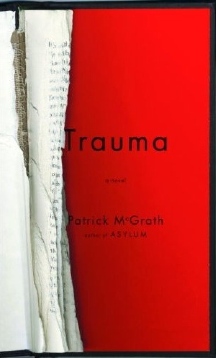
|
|
|
Turn the page, if you can. |
I'm glad to have an
opportunity to mention Patrick McGrath, because his first
book, 'Blood and Water', was part of my early exploration of the limits
of the horror genre, or more particularly – the lack thereof. I
can mention him, well, because I'm in charge, but more precisely, because
he has a new book out, 'Trauma' (Knopf / Random House ; April 11, 2008
; $24.95). We'll start with the new and work our way back to the old.
'Trauma' takes place in the mind of Charlie Weir, a Manhattan psychiatrist
who found his occupation by virtue of his own traumas. He tells you this,
right out the box, and that refreshing directness is part of what makes
this novel such a dark delight. His dad flew the coop, left his mother
a wreck, and Charlie not so hot himself. But he's pulled out of it, sort
of, and now he's counseling traumatized war veterans. This proves not
to be a source of happy accidents. But though he's watched his life swirl
away from him, he maintains a façade of control, a façade
that will of course have unfortunate consequences. Charlie marries unwisely,
with consequences. He takes up with a new woman, met via his competitive,
controlling brother. He may be able to observe madness, but he may not
be able to avoid it. Family history has a way of taking you in directions
you do not wish to go.
McGrath writes succinctly and invasively, taking you into a mind that
is unraveling as fast as you can turn the pages. But it's a controlled
chaos, with brilliant literary technique put in the service of an unsettling
intellect. 'Spider', for example, is a frighteningly accurate portrait
of a man whose mind is under assault from schizophrenia, and was a perfect
choice for adaptation by David Cronenburg. It was a horror novel that
was surrealistic and naturalistic simultaneously. His first collection
of short stories, 'Blood and Water' stretched the bonds of the horror
genre, demonstrating that fiction intended to cause emotions ranging from
unease to terror could have a wide literary range. McGrath's fiction captures
the skewed points-of-view of grippingly real characters and takes his
readers on visionary journeys. Pick up 'Blood and Water' or 'Spider' and
then try to stop from buying 'Trauma'. You may need the help of someone
in Charlie's profession to kick the habit, however. Or just figure that
this is a good time to start sniffing glue.
|
Agony Column Podcast
News Report : Patricia A. McKillip Interviewed at SF in SF, April 20,
2008 : A Good Take
I had to have two goes
at interviewing Patricia A. McKillip at SF
in SF on April 20, 2008. The first time around, the break between
the reading and the panel was ending, time was pressing, Terry Bisson
was making those clucking sort of noises you make when you want to say,
"What the hell are you doing?" and I managed to ask McKillip
one of those questions that elicits a very politely phrased "What
the hell are you talking about?" response right out of the box. Heres
one interviewer's experience: if you ask a question that requires an elaborate
explanation, punt it. McKillip and I agreed to have another shot after
the panel discussion, which went, comparatively speaking, swimmingly well
– and here's
the MP3 to prove it. (Or if not prove, at least suggest the potential
magnitude of the disaster that would have ensued had I not been granted
a "reset" by my very kind guest.)
|
| |
|
04-30-08: Eleanor Coppola Takes 'Notes on a Life' ; Agony Column Podcast
News Report : David Lunde, Patricia A. McKillip and Terry Bisson at
SF in SF, April 20, 2008
|
Bumpy Roads
|
Like
sand through an hourglass, so go the days .... |
It's perhaps hardest
to stand not in the spotlight, not exactly out of it, but right next to
it. The forces at the edge of the eye of the hurricane will tear you apart
before you reach that deceptive calm. It takes iron will, deep focus and
a belief in your self and those around you. Such qualities, you might
imagine, would make one a superior writer, at least when it comes to chronicling
hurricanes. Youd be right, and you'd need look no farther than
Eleanor Coppola for an example of whats required.
I have to admit that I rather preferred Hearts of Darkness, a documentary
about the making of Apocalypse Now, to the movie itself. I'll never forget
Eleanor Coppola in that movie, a presence more powerful than any actor
could ever hope to achieve. She translated that experience herself into
'Notes on the Making of Apocalypse Now' a book that Pauline Kael said,
"made me want to see his movie." (Pauline Kael, it should be
mentioned, gave a very positive review to ReAnimator, and won my heart.)
It's no surprise then, that I quickly moved Eleanor Coppola's newest book,
'Notes on a Life' (Nan A. Talese / Doubleday / Random House ; May 6, 2008
; $25) off the Rolling Shelves and onto my cluttered desk, where it migrated
into the confines of my tiny brain. These are Eleanor Coppola's notebooks
starting in 1986 and running through 2006. Twenty years of family life
and art, of tragedy and triumphs from the personal diaries of a remarkable
woman and mother.
The parent part intrigues me, because well, I'm a parent with one child
doing professional video for business marketing and another still in art
school. Let me tell you this all sounds ducky and is, but it's also easier
said than done. It's just hard to be a parent. Reading Coppola's vignettes,
that reveal glimpses of lives we could only imagine, does something rather
magical. We hear Francis Coppola typing on his computer, or see Sofia
rehearsing in stocking feet. The immense visions we experience in the
movies, the perfect shots and the powerful emotions they evoke, are pixilated,
broken down into the million moments of a family struggling to get through
one day after another. It's a fascinating feeling, like seeing the Mona
Lisa undone and then made whole by the artist himself. And as a parent,
it gives you insight into your own life, the ability to look it at from
the outside, where it's not just more bills and meals and laundry.
This is all made possible because Coppola is an engaging diarist, a careful
chronicler of her own life and the lives of those around her. She has
the knack to pick out the right details, the intelligence of an artist
and the wisdom not to get caught up in her own artistry. 'Notes on a Life'
is remarkably easy to read, and you'll likely read it more quickly than
you expect. You may be reading someone else's life, but you're still living
your own. Every moment; take notes. Someone may want to read them; perhaps
just you, perhaps the world, but what difference?
|
Agony Column Podcast News Report : David Lunde, Patricia A. McKillip
and Terry Bisson at SF in SF, April 20, 2008 : "Seems like we have
a theme here"
|
David
LUnde & Patricia A. McKillip |
Today's Agony Column Podcast News Report is a recording of the panel discussion
at SF in SF on April 20, 2008, featuring
David Lunde, Patricia A. McKillip and
of course, the inimitable moderating (though maybe that's the wrong word)
talents of Terry Bisson. Heres
a link to the MP3 of the panel discussion. Some language may be included,
most of it English, the majority of that quite civil. Most, that is; and
depending of ccouse on your definition of "civil".
|
| |
|
04-29-08: Millipede Press and Tom Tryon 'The Other' ; Agony Column Podcast
News Report : David Lunde Reads at SF in SF, April 20, 2008
|
The Twins at 50
|
Harry
O. Morris did the cover art. |
If they were thirteen
years old back in 1971, they'd be fifty now. They'd probably be living
in seclusion – in a small town along the California coast, I would
hope. Niles and Holland Perry, those strange brothers living in the house
at the edge of town, overlooking the cliffs. Bought with money inherited
from the tragic death of their father. A little strange but seemingly
harmless.
I wont say precisely how close I was to their age when I first
delved into the world of Thomas Tryon's 'The Other' (Millipede
Press ; September 2008 ; $17), but in retrospect it occurs to me that
sympathy might have overtaken fear back then. Children can certainly be
monsters; but when you're a child as well, it's easy to identify with
the monster.
Thomas Tryon's first novel is a masterpiece of atmosphere, a carefully
etched journey into fractured families and small-town secrets. From the
opening first-person narration to the final coda, Tryon's language is
at once easy and effortless even while it creates a feeling of unease.
The dusty streets of a small-town in the nineteen-thirties, the quietly
creepy inhabitants of the house; Tryon scrapes away at your nerves with
the kind of persistence that is truly frightening – obsessive. Once
you're there, time slides into those sort of dog days of summer, when
there's nothing to do and the heat oppresses your mind and clouds your
thinking. Waking dreams and living nightmares become one in the same.
And reading is the most powerful and persistent waking dream.
I suspect that lots of us have withered, thumbed paperbacks of Tryon's
novel in the garage, their yellowed pages suggestive of the sort of time
that passes in the book; sick time, call it, blurred by illness. Nothing
is clear but the words on the page and the miasmic fever of reading. I'm
sorry, I can't come to work today. I'll be laying on the couch and reading.
Millipede Press has put together an impressive and inexpensive re-issue
of Tryon's classic. It features a thoughtful introduction by Ramsey Campbell,
a thought-provoking afterword by C. Robert Holloway, with cover and internal
art by Harry O. Morris. There's a certain scholarly, sterile look that
adds to the creepiness of the narrative. Millipede makes nice books and
the price is outstanding. But in the end, it's the words you want, and
the words you get are insinuating, seductive, unpleasant. It's a bad dream
brought to life. Morris' surreal prints are like chunks from a filmstrip,
gritty and suggestive. Those boys would be fifty now. That old house,
where the grass grows unchecked and the weeds in the backyard might hide
the corpses of rabbits and raccoons. Knock on their door. They'll answer.
|
Agony Column Podcast
News Report : David Lunde Reads at SF in SF, April 20, 2008 ; Instead
Today's podcast picks
up the reportage from SF in SF on April
20, with author Patricia A. McKillip and her husband,
SF poet David Lunde. It was a fun night; the house is
getting fuller, and the authors were stellar as ever. I must say I was
totally unprepared for what Science Fiction (and literary) poet David
Lunde would read, but you'll hear as did I – he was fantastic. Alternately
funny, poignant, sometimes both, Lunde read from both genre material and
literary works with equal power. Let
me put you front row, center with this MP3 link. You're about to meet
the Astronaut's Wife. You'll like her.
|
| |
|
04-28-08: Pico Iyer Takes to 'The Open Road'
|
A 2008 Interview
with Pico Iyer
Pico Iyer
has been a traveler for most of his writing life, turning out one stellar
book of prose after another. And during most of that time, he's been friends
with the Dalai Lama, a result of his father's interest in the man stemming
from a time when many of us – including Pico Iyer himself –
were, not to put too fine a point upon it, in diapers. In fact, Iyer was
just two years old when his father first met the Dalai Lama, shortly after
he'd departed Tibet to live in exile. That life has been chronicled by
many writers, but few with the sort of relationship that Iyer developed
in the subsequent years. His new book, 'The Open Road : The Global Journey
of the Fourteenth Dalai Lama' (Alfred A. Knopf / Random House; March 25,
2008 ; $24) is a magnificent and concise vision of arguably one of the
most important and influential men in the world today.
I stopped by Capitola Book Café and talked
to Iyer for one of the more intense interviews I've had of late. There
in the back room, we covered a journey both spiritual and physical, a
friendship between two men that has lasted over 30 years and taken both
around the globe. Iyer's book is a wonderfully textured, fascinating journey
itself. His prose is stellar, drawing the reader into a world as big as
the world and as small as a single man, doing what he can with the sort
of aplomb that earns him adulation as well as excoriation. He's cunningly
constructed the book to read as much like a novel as a biography, which
shouldn't surprise one. The Dalai Lama is after all, a man of action.
Iyer did not let his immense archive of conversations with the Dalai Lama
get in his way. He told – and this is the second time recently I've
heard this quote – "If you want it shorter, it will take me
longer." Iyer's time winnowing down his work was time well spent.
You can
hear our conversation here via this MP3 link. For me, this conversation
was a welcome return to Buddhism, which I've discussed in delightful talks
with writers as diverse as John Burdett and Kim Stanley Robinson, who
memorably told me, "Buddhism is hilarious." I agree –
and I asked Iyer about this as well. And truth to tell, this chat came
at a time of a bit of personal turmoil. I have to say both Iyer's book
and the interview helped ground me once again, helped me focus back on
the books and the writing, back on the books, yes – this one first.
Front and center; the open road.
|
| |
|
|

